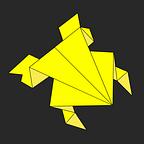Research: Internet Service Providers Blocking Fewer Websites from the Sanction List
The number of Ukrainian Internet service providers that do not block even a half of ‘sanctioned’ websites has increased. In May, there were 34 providers like that, while in March, only 20. Rivne and Dnipro are the cities where they block the less.
These are the monitoring findings of Internet ban conducted by the Digital Security Lab in May 2019 on 62 Internet service providers in all regions of Ukraine.
The biggest number of websites — over 240 — are blocked by providers such as Kyivstar, Volia, Datagroup, Zhytomyr-based Frynet, Mykolaiv-based WildPark and Lviv-based Pointet.
The least blocked are certain ‘sanctioned’ websites from Crimea, occupied territories of Donetsk and Luhansk oblasts, and Russia. For example, the website of the so-called “state council of the republic of Crimea” (https://crimea.gov.ru) is only blocked by five providers, and the websites of the so-called “ministry of health of DPR” (http://minzdrav.govdnr.ru), so-called “council of ministers of LPR” (https://sovminlnr.ru/) and news portal “DRN live” (http://dnr-life.ru) are blocked by 13 providers each.
Some Ukrainian providers were not blocking the popular Russian platforms Odnoklassniki, mail.ru, yandex.ru, which are among the top 25 most visited websites from Ukraine. For example, in May, Odnoklassniki and mail.ru were accessible in Odesa through one provider. Mail.ru also was not blocked by one provider in Uzhhorod and Zaporizhia. Yandex.ru was accessible for two weeks in May through six providers in Dnipro, Cherkasy, Kharkiv, Poltava, Odesa, Zhytomyr and Chernivtsi.
According to the Chair of Digital Security Lab Iryna Chulivska, those providers that do not ban websites cannot be held liable. “President Poroshenko’s decrees on website blocking do not comply with Ukrainian and international law. Providers that do not completely or partially block ‘sanctioned’ websites do not violate anything, they cannot be fined. That is why the restrictions of Ukrainian Internet that we have only come from the goodwill of the providers,” she explained.
The Digital Security Lab supported by Open Technology Fund, verified the availability of 264 websites listed in the NSDC sanction lists through 62 Internet service providers in 24 cities of Ukraine using OONI software designed to determine Internet censorship, mass surveillance and manipulation of Internet traffic.
Full details and measurements of Internet ban collected by the Digital Security Laboratory in May 2019 are available here.
Note: On 15 May 2017, President P. Poroshenko enacted the first NSDC decision on sanctions # 133/2017, which, in particular, contains a “ban on Internet providers to provide Internet access to users of web-resources,” including popular social networks VKontakte, Odnoklassniki, Yandex, mail.ru and others. Later on, two more NSDC Decisions # 126/2018 and # 82/2019 were put into effect. They put the websites of the so-called “DPR,” “LPR,” Crimea, Russia, etc. under ban. Ukrainian human rights and media organizations have repeatedly called for the abandonment of unlawful restrictions on the Internet and for legitimate and transparent ways to combat Russian propaganda and cyber attacks.
